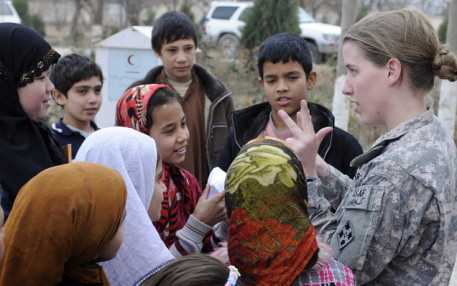Involving women in preventing, managing and resolving conflicts
Szöveg: honvedelem.hu / nato.int | 2013. március 8. 19:00NATO and its operational partners in the International Security Assistance Force (ISAF) and Kosovo Force (KFOR) are demonstrating a strong commitment to promoting the important role that women can play in preventing, managing and resolving conflicts.
In support of the resolution, the gender perspective is being mainstreamed into NATO doctrines, training and exercises, as well as in the planning and conduct of NATO-led operations.
“NATO takes the gender perspective very seriously, especially in operations," says Ambassador Evans, the NATO Assistant Secretary General for Operations. “At the Lisbon Summit, Allies and their ISAF and KFOR operational partners, agreed to a comprehensive Action Plan to mainstream UNSCR 1325 into NATO-led operation. They remain fully committed to its implementation. In parallel, many of these countries have developed their own national plans and we make the most of opportunities to share lessons learned."

Female boots on the ground
Experience in Afghanistan and Kosovo has shown that NATO-led operations can be more effective with enhanced female participation. Women can be an asset and an enabler, for instance, when it comes to engagement with the local population.
“Having gender expertise, as well as having more female soldiers and officers in theatre, improves our ability to conduct operations more effectively," says Evans. “NATO female soldiers train and mentor Afghan female soldiers. They set the example in a society that is not used to seeing women in roles that are traditionally assigned to men".
Learning from experience
To learn more systematically from experiences in operations, Allied leaders decided at the Chicago Summit in May 2012 to conduct a review on the practical implications of UNSCR 1325 for the conduct of NATO-led operations and missions.
“During the spring months, a team of researchers and military experts from Allied and partner countries will deploy to the theatres of operation in Afghanistan and Kosovo," explains Evans. “They will be looking at the elements of UNSCR 1325 that apply to NATO-led operations; how the gender perspective has been implemented practically and to what effect; what the main challenges have been; and what lessons can be learned. This will no doubt have an impact on the way NATO plans and conducts its operations in the future".